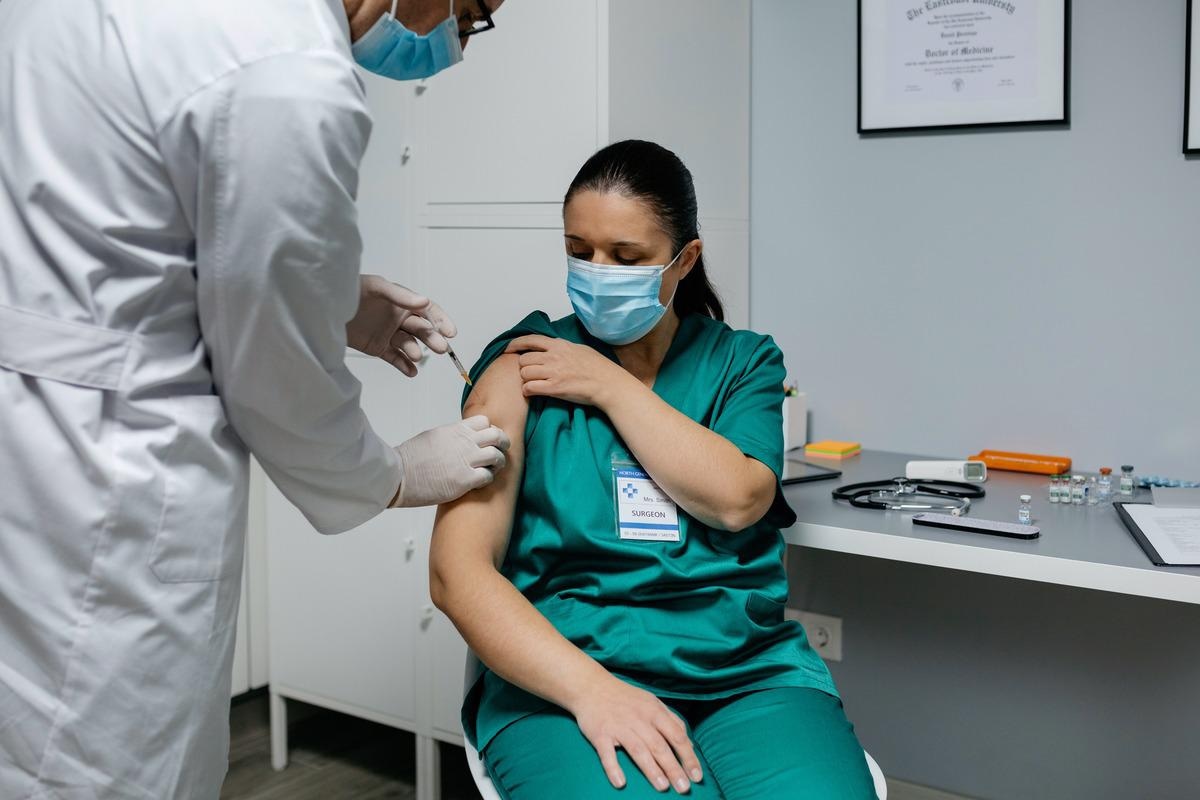Many countries relied on vaccine development and mass administration programs to allow them to dismantle measures designed to curb the transmission of severe acute respiratory syndrome coronavirus 2 (SARS-CoV-2), the causative agent of coronavirus disease 2019 (COVID-19). However, many of the new variants have shown the ability to break through the protection afforded by vaccines. In a study published in eBioMedicine, researchers have been investigating the vaccine response of healthcare workers from specific vaccines to different variants.
 Study: Determinants of early antibody responses to COVID-19 mRNA vaccines in a cohort of exposed and naïve healthcare workers. Image Credit: David Pereiras/Shutterstock
Study: Determinants of early antibody responses to COVID-19 mRNA vaccines in a cohort of exposed and naïve healthcare workers. Image Credit: David Pereiras/Shutterstock
The study
The study included 578 healthcare workers from a hospital in Spain, exceeding the required 570 to provide a precision of 5% and a 95% confidence interval (CI). For staff to be included, they were required to be above 17 years old, with no recent absenteeism and regular interaction with patients. They could not be close to retirement or participating in COVID-19 related clinical trials.
The participants were recruited at the peak of the first wave of the pandemic in Spain, and two additional visits were performed at months one and six. If the participants showed evidence of previous SARS-CoV-2 infection, they were invited to follow-up visits at months three and nine. All participants received a follow-up visit at month 12.
At the month nine visit, 64 participants had received one dose of either the BNT162b2 or mRNA-1273 vaccines, and by month 12, the vast majority of individuals had received two doses. The participants were mostly female (73%) with a mean age of 42 years. Twenty percent had comorbidities, and 22% were taking chronic medication. Thirty-two percent of individuals had previously been infected, and 22% of those vaccinated had previously been infected.
Four hundred forty-six individuals returned for the month 9 and 12 visits, and the levels of IgA, IgG, and IgM against SARS-CoV-2 were measured at each visit. In total, 81% of individuals had received either one or two doses of the vaccines, with 76% receiving BNT-162b2 and 24% receiving mRNA-1273. Seventy-three percent of vaccinated individuals had adverse events, mostly after the second dose.
Out of 159 fully vaccinated participants, ten vaccine breakthrough infections were detected after 15 days postvaccination. There was no significant difference in most antibody levels between those that suffered from vaccine-breakthrough infections and those that did not. IgA proved to be the exception to this, with vaccine breakthrough infection sufferers showing lower levels against the nucleocapsid protein and the S2 subunit of the spike protein.
Between seven and seventy-two days after the first vaccine dose, 92% of individuals were seropositive, rising to 96% when samples from less than 10-days post-vaccination were excluded. The researchers tested for IgA and IgG levels against all spike antigens tested (RBD, full-length spike protein, and S2). These all increased after a single dose – although there was significant variability between individuals.
Following the second dose, all participants were seropositive except one taking immunosuppressant drugs. A similar pattern was seen to the first dose, with IgA, IgG, IgM, and neutralization capacity increasing in all individuals at different rates. IgG antibodies could detect full-length spike protein from the three variants tested (Gamma, Alpha, and Beta). Still, IgM was significantly more likely to be seronegative for all three variants than wild-type.
Those who had previously been infected with SARS-CoV-2 showed higher levels of all antibodies against all antigens than those who had not been infected, a state that remained true for the unvaccinated and those who had received one or two doses. This was similar across all variants. The same remained true for neutralization capacity. Interestingly, those infected over 11 months before vaccination showed higher levels of IgA and IgG than those infected later, but this could not be detected using alternate cutoff values.
The mRNA-1273 vaccine elicited higher IgA and IgG levels against all three antigens and induced higher neutralization capacity after two doses compared to the BNT162b2 vaccine. The researchers also found adverse events were more common in individuals with higher levels of IgA and IgG against the spike protein. Other factors associated with different antibody responses included smoking, increased age, having comorbidities, and being of the female gender, all of which lowered the antibody response.
Conclusion
The authors have shown that those who receive the vaccine post-infection with SARS-CoV-2 show higher levels of antibodies and that there is a significant increase in antibodies after each dose of the vaccine. They also identified that the Moderna mRNA-1273 vaccine induces higher levels of antibodies than the Pfizer/BioNTech BNT162b2 vaccine and several other factors that can affect antibody levels. This information could help inform vaccine manufacturers and healthcare workers and help inform future public health policy.